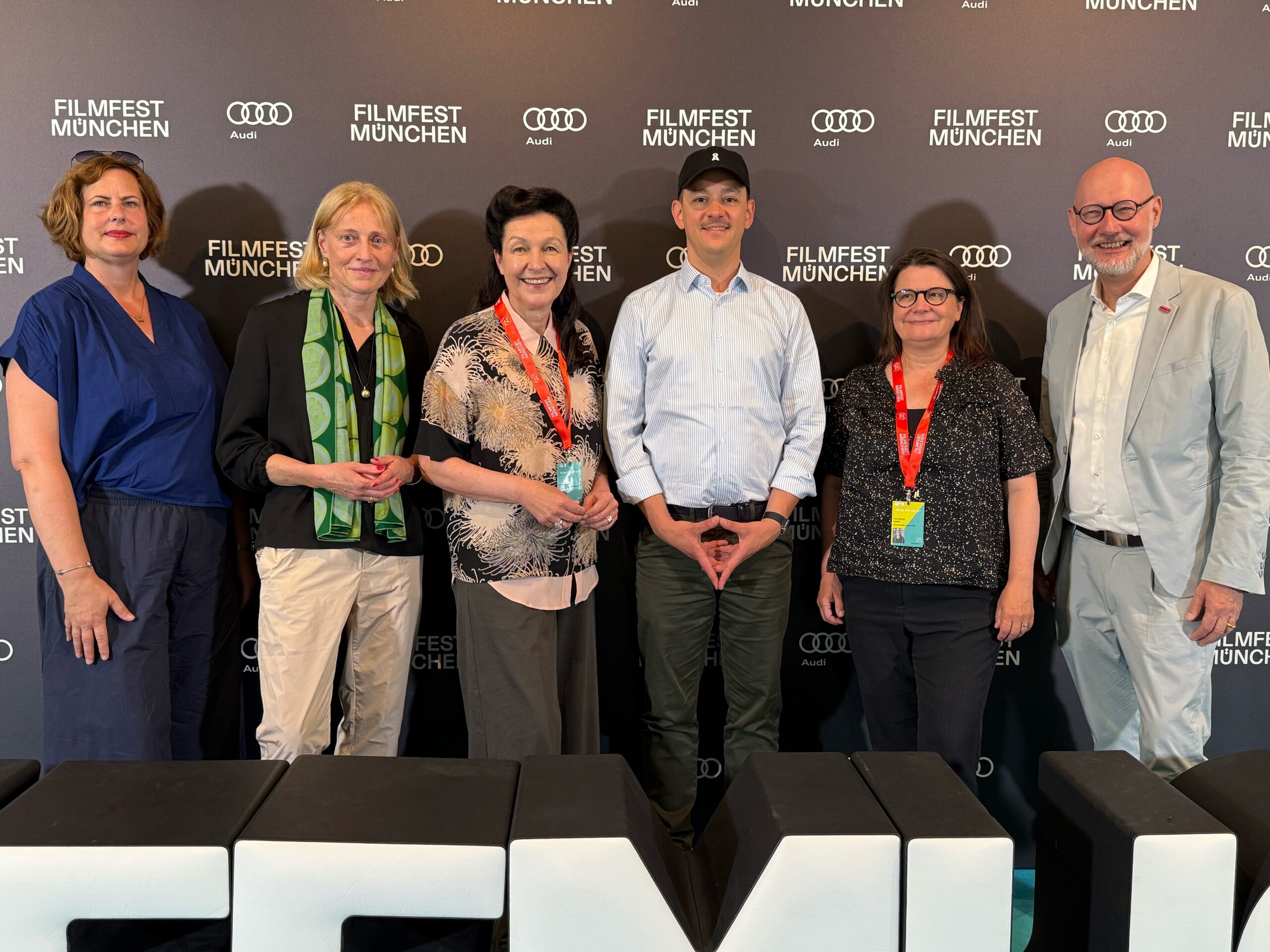
As part of the 42nd FILMFEST MÜNCHEN, the German Film and Television Academy Berlin (Deutsche Film und Fernsehen Akademie Berlin), together with five other German film schools, organized a panel discussion on diversity in the film industry on June 30.
The Project “Boosting the Next Generation” was initiated by the MaLisa Foundation, Film University Babelsberg KONRAD WOLF, University of Television and Film Munich (HFF), Film Academy Baden-Württemberg, Academy of Media Arts Cologne (KHM), International Film School Cologne (ifs), German Film and Television Academy Berlin and supported by Netflix.
Following a keynote speech by Sasha Bühler, Director of Film DACH at Netflix, and Maria Furtwängler, filmmaker and co-founder of the MaLisa Foundation, strategies for promoting diversity in the film industry were discussed. Yugen Yah, filmmaker and podcaster, moderated the discussion. The panel included Susanne Stürmer, President of the Film University Babelsberg KONRAD WOLF, director and author Merle Grimme, Yelyzaveta Davydenko, a student at the Animation Institute of the Film Academy Baden-Württemberg, and Sinem Gökser, Diversity and Inclusion Officer. Together with university members, filmmakers, and students in attendance, the participants discussed the importance of diversity in modern film production and the best possible methods of promotion.
The joined forces of the universities and the support provided by Netflix have advanced diversity work in important areas and enabled it to become more professional. One example is the development and implementation of a cross-university continuing education program on diversity that is specifically tailored to the intersection of film and teaching. If diversity-oriented perspectives and working methods are taught as a matter of course during training, students are more likely to take these with them into the industry as standards. Committed teachers from all six universities are participating, and the feedback has been positive.
One thing was made clear through the discussion: Diversity is not an optional extra, but an essencital part of film study and production. The participants emphasized the need to create sustainable standarts and structures so that responsibility for diversity does not fall soley on individuals.
The “Boosting the Next Generation” project exemplifies that diversity and anti-discrimination work is effective when it is structurally conceived and approached collaboratively. The discussion ended with a call for the industry, funding institutions, and polocymakers to take targeted action to establish disversity and discrimination as binding standards. There were also some positive news: The paricipating film schools will continue working together. The Hamburg Media School (HMS) has now joined the grouping as well.
